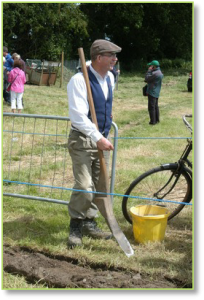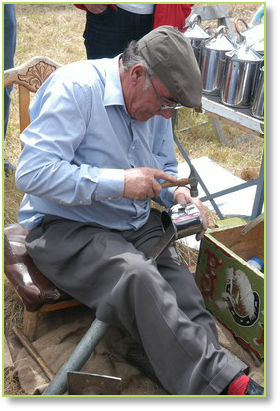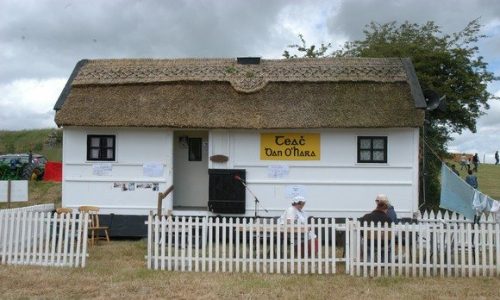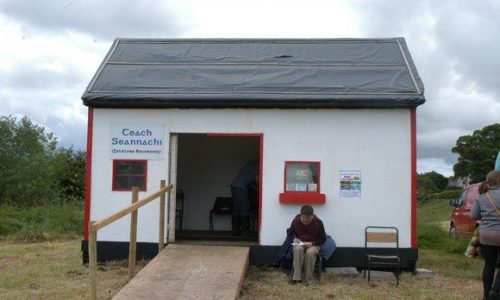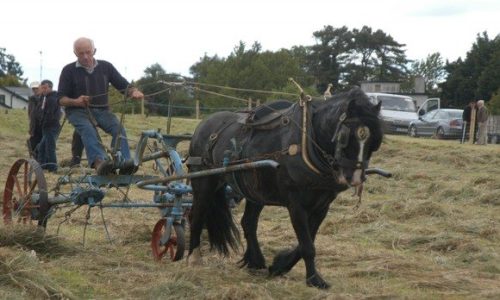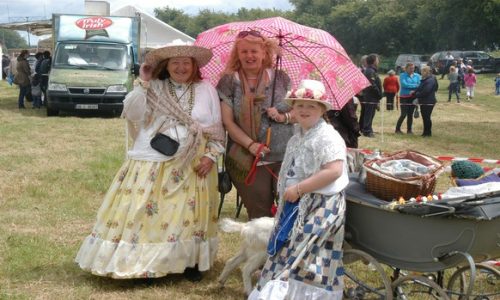DAN O' HARA'S HOMESTEAD AT
TRIM HAYMAKING FESTIVAL
Achuisla geal mo chroi, won't you buy a box from me...
It's a song that is as haunting as it is timeless and true and tells the very sad story of Dan O' Hara
Learn about the true story
On a paddock by the Boyne we create the scene of Dan O Hara’s traditional homestead. See Dan milk the cows, shear the sheep, feed the pigs and collect the eggs from the henhouse. Watch the tin smiths & see the fires stoked with the turf being burnt and much more.
The Story Of Dan O'Hara
Dan lived with his wife and seven children. He and his family were self sufficient in that they farmed over 8 acres of land. They kept animals, grew vegetables and gave a lot of land to potato growing.
As with many houses of that time, his fire place was never short of turf or visitor and; as was much the tradition of that era, his homestead played host to singing and dancing in the form of céilis. These were social gatherings that would involve Irish dancing, jigs & reels and conversation spoken only in the Gaelic Language.
As Dan did not own his house or land he would have been at the mercy of the landlord. In those days Landlords were predominantly wealthy Nobles & Gentry of British (but also) Irish origin. Some, if not most of these people looked upon the Irish as nothing more than peasants that were required to genuflect as a token of respect.
The Window Tax
Dan’s very happy home and family life was torn apart when he decided to increase the size of the windows in is home and fell victim to the new tax.
Introduced in England in 1696 to recoup losses incurred under William III caused by what was termed ‘the clipping of coinage’, meaning; coins dating form pre 1662 had their edges clipped resulting in their weight changing and the currency devaluing. Ultimately this lead to destabilisation of the silver coins as legal tender.
Not imposed in Ireland until 1799 the tax targeted homesteads that had 7 to 9 windows for an extra 2 shillings and 10 to 19 windows for 4 shillings.
Dan O Hara was evicted from his home for non payment of rent. He was forced to emigrate like so many and when he landed in New York he was without his wife and 3 of his children, each of whom had died on the ship during its crossing of the high seas.
With no money, no dreams and a broken soul, Dan put his remaining 3 children into care and lived out the rest of his days selling matches on the streets.
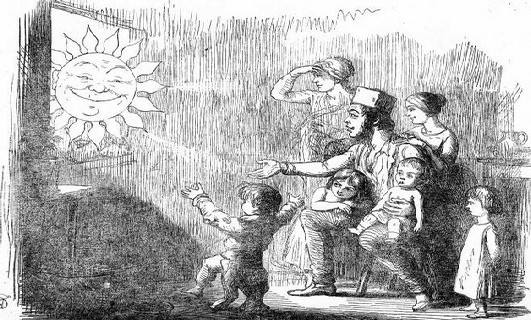
A vision of the repeal of the Window Tax
